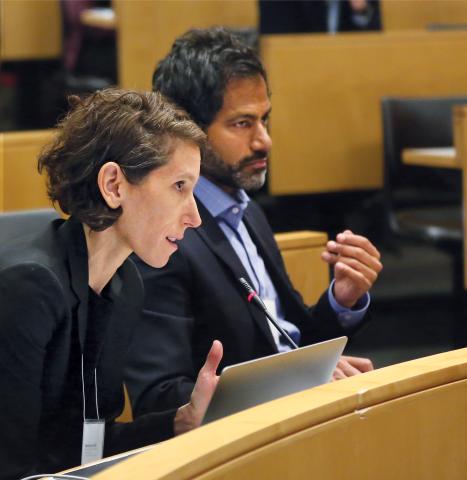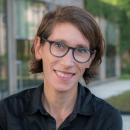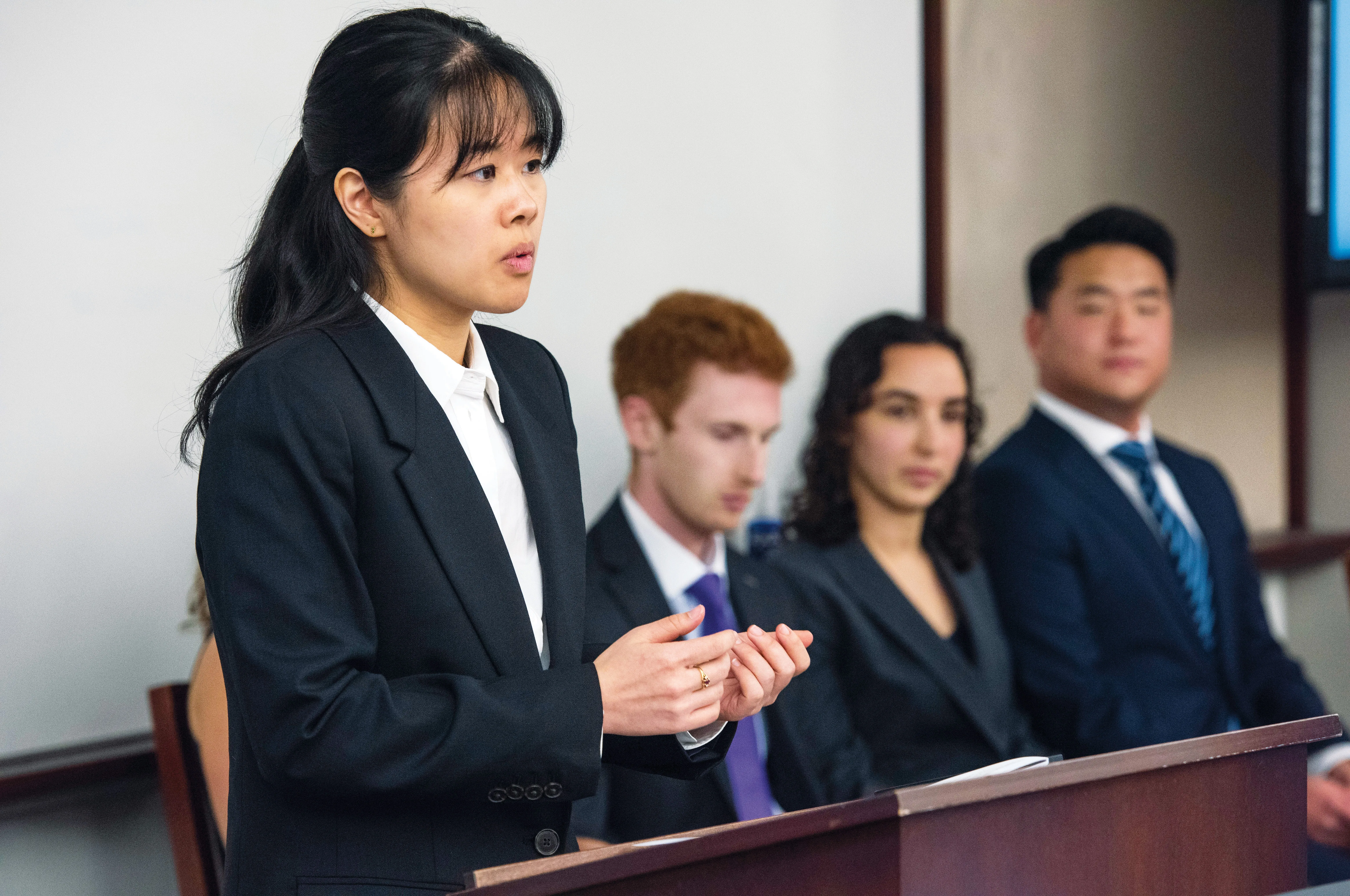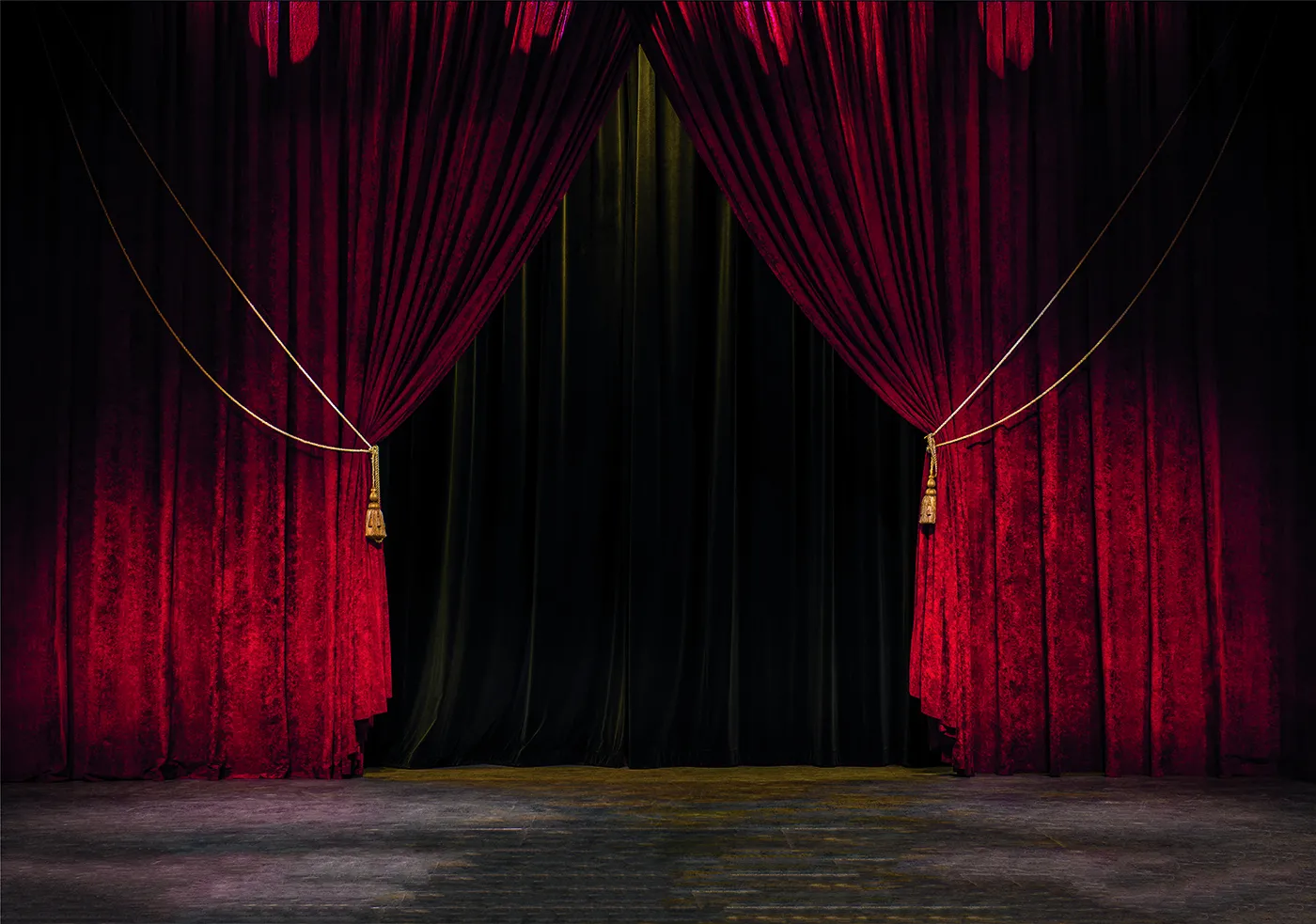Lies and the Law
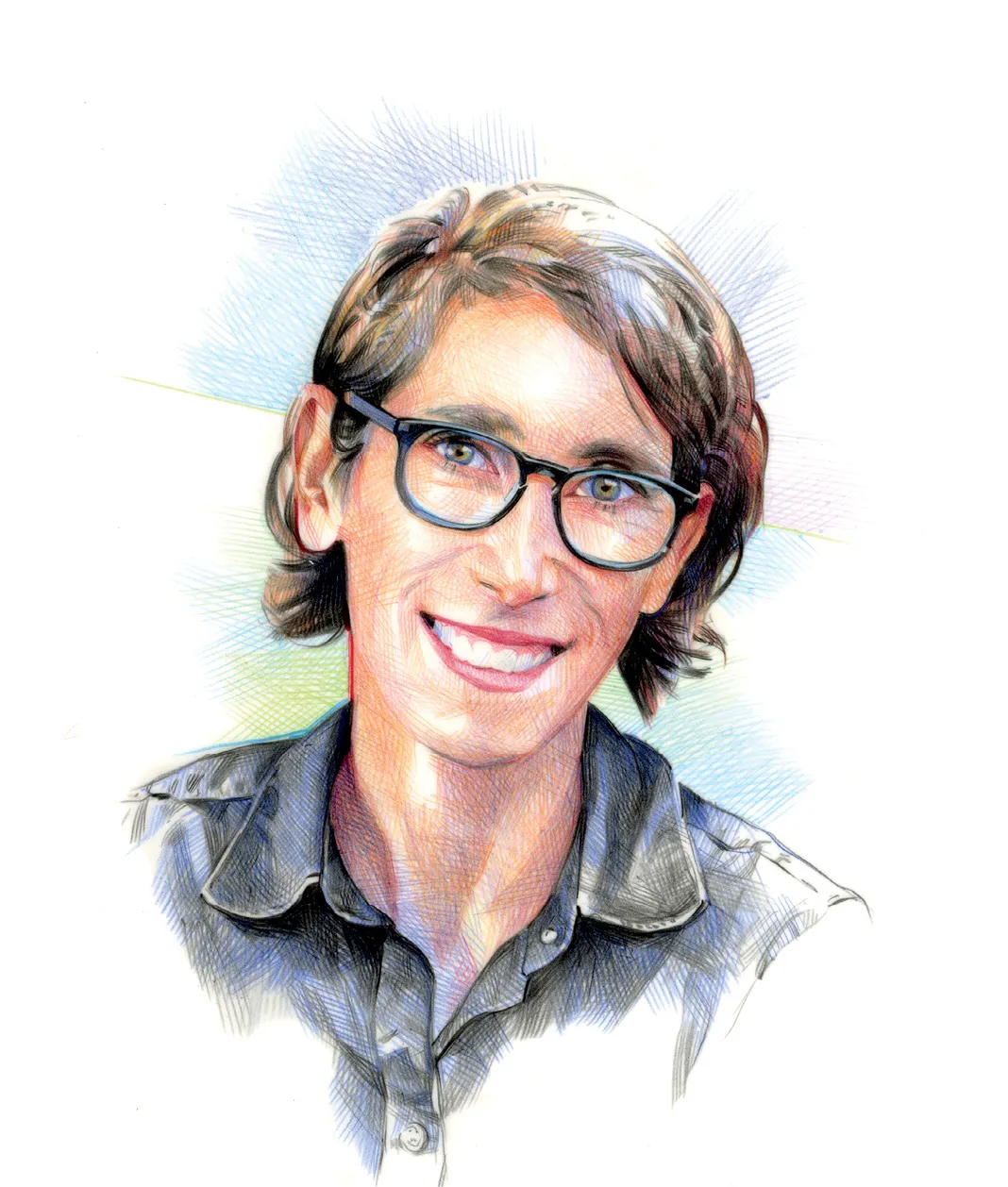
Genevieve Lakier calls herself a “First Amendment addict.”
A leading scholar on what freedom of speech means, she came of age as a lawyer just long enough ago that she remembers fielding questions about what was left to study on the topic.
“These questions are much less fixed than when I was taught First Amendment law and started becoming an academic,” said Lakier, MA ’01, PhD ’14, Professor of Law and Herbert and Marjorie Fried Teaching Scholar at the Law School. “The view by many, particularly the senior scholars, and the litigators in the field, was that all the hard questions had been answered, which is amazing to remember. But someone basically said exactly that when I was on the teaching market. You know, ‘What are you doing? There are no interesting questions left.’”
There’s been a lot of discussion on lies, but there hasn’t actually been that much discussion by First Amendment scholars and lawyers about what the First Amendment says about lies—whether the First Amendment doctrine should change in this new era.
Genevieve Lakier
Today, nobody thinks that. The explosion of social media, the splintering of traditional media, and the rise of artificial intelligence tech tools means that misinformation and lies are everywhere. Increasingly, litigators, scholars, and the public are reconsidering what the First Amendment means and how it might inform the challenges of this moment.
At this unique moment in history, Lakier has carved out for herself a timely and fascinating focus area of scholarship—the ways in which the First Amendment interplays with false and misleading information. She honed this scholarly niche in 2022 and 2023 during a stint as a senior visiting scholar for the Knight First Amendment Institute at Columbia University, where she led a unique project called Lies and the Law. Now back at the Law School, she continues to advance her exploration of free speech and falsity in an age of virtually unlimited information.
“The First Amendment right now is so, so important—so contested. There are so many different views about what it says and what it requires,” Lakier said. “Also, it is so powerful as an engine of constitutional litigation. It’s becoming the vehicle for lots and lots of different arguments about how we regulate social media, how we think about government power, and what we think about schools. A lot of these arguments get channeled into First Amendment frameworks.”
A Perfect Project for an Iconoclast
In selecting what scholarship areas to pursue, Lakier looks for issues that have real-world impact with an eye toward furthering conversation about policymaking.
“She is somebody who thinks very deeply about free speech and the values that free speech is meant to serve…somebody who can think and talk about those things in the most reflective and profound way, but who wants to have an effect on our society,” said Jameel Jaffer, executive director of the Knight Institute.
Lakier spent her first 11 years in South Africa before relocating to Deerfield, Illinois, a haven for Jewish South African immigrants, such as her family. Her background provided her with an international perspective on free speech.
“My cultural sensibilities are still sort of halfway in between,” she said. “I joke that I’m sort of in the middle of the Atlantic Ocean because I’m halfway between South Africa and Chicago. I have enough of that sensibility to feel how unusual the American free speech regime is. Like almost every other country, [South Africa] has a somewhat less speech-protected view of free speech. Most other jurisdictions employ what’s called proportionality, where you balance the interest in regulating speech against the interest in speaking. It allows more regulation on things like hate speech.”
Lakier always anticipated a career in academia, but before becoming a law professor, she earned a PhD in anthropology at the University of Chicago, studying speech and symbolic expression in the student protest movement in Nepal.
“I was interested in the conditions under which you can have a healthy democratic public sphere, which I think is more or less the central primary question that organizes First Amendment doctrine today. So, the themes were very similar,” she said.
Anthropology, however, was about observing, bearing witness, and understanding. Lakier wanted to be more in the mix, suggesting changes, making policy recommendations, and shaping the rules that govern the speech environment.
She believes the right place to land is a middle ground—not heavy-handed restrictions, as in Montana, where the state earlier this year banned the social media app TikTok, but also not a strict libertarian approach of no limits at all. Where government limits are imposed, it must be done carefully and thoughtfully, she said.
Lakier, who thinks of herself as an iconoclast, said she was attracted to UChicago because it allowed her the space to explore ideas expansively. The culture at UChicago also shaped her into a free-thinking scholar.
“UChicago has a reputation as being a place that welcomes iconoclasts, people who are independent in their thinking. And it is true…as a faculty member, I feel very lucky to be in an institution where I get to have really rich and spirited debate with people who think very differently. And I am encouraged to be as independent thinking as possible.... I think it has helped me try and stake out this, in-neither-camp’s position.”
The Lies and the Law Project gave Lakier leeway to suggest a format for the project, which drew liberally on UChicago principles. She centered her work around a series of five public discussions, featuring scholars and also inviting engagement from outside academia.
“There’s been a lot of discussion on lies, but there hasn’t actually been that much discussion by First Amendment scholars and lawyers about what the First Amendment says about lies—whether the First Amendment doctrine should change in this new era, this post-truth era as some describe it, or is there more flexibility in the doctrine than we have thought? What should the First Amendment have to say about this profound anxiety about lies?
The experience helped Lakier further develop her own research ideas. Her big question in today’s climate is: How much power does the government have under the First Amendment to tackle lies, and how much should it have?
Tackling an Old Problem in a New Era
Lakier believes that the law isn’t the only way to combat misinformation. She is a proponent of strengthening institutions that can help citizens trust what is true.
“Lies are only dangerous when they become politically powerful, politically effective,” she said. “I think ultimately, the problem of lies is a democratic problem, an institutional problem. I don’t think it’s a technological problem. I think technology can exacerbate or affect how the problem manifests.”
It is synergies like that that convince Lakier, who is fundamentally an optimist, that democracy will survive.
“I think [AI and social media are] just another example of how generative and ever changing our democracy is, and our speech environment is. I would hope that the project—which was tackling this really difficult problem, but doing so in a pretty open and expansive, optimistic way—brings a little bit of that flavor to the conversation—that people recognize that we have resources to tackle these difficult problems. To the extent that we find the doctrinal rules to be an undue constraint, or to be preventing us from doing important and necessary things, well, maybe those can be changed.”
She continued: “How do we recognize both the twin harm threats of government power or government abuse and private abuse or private misinformation, disinformation and lies. These are both problems to the health of our public sphere, and we need to think about rules that can balance these two threats… It doesn’t lead me to think we’re doomed. It just leads me to think that this work is really important.”
Christine Foster is a freelance writer based in Durham, Connecticut.
